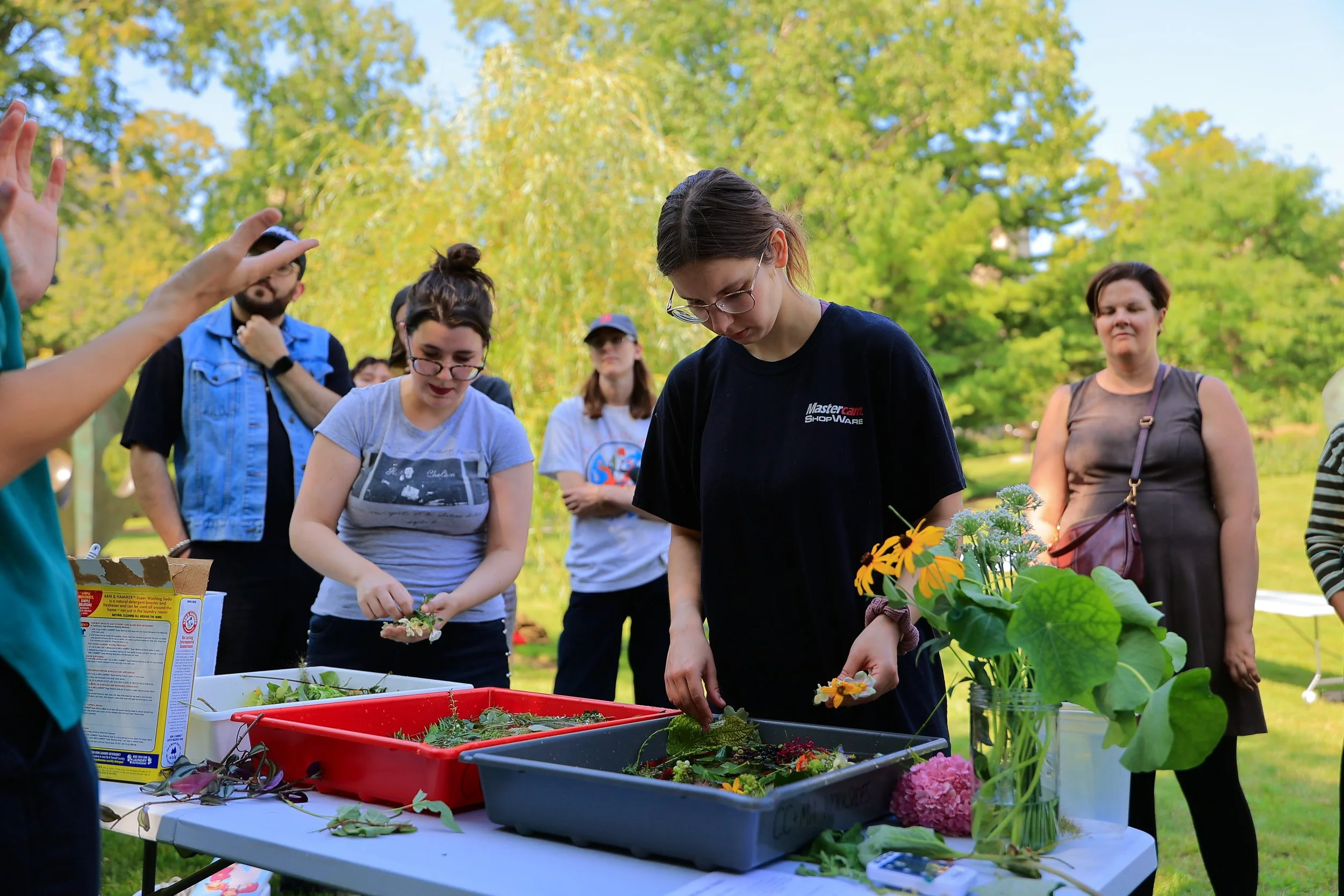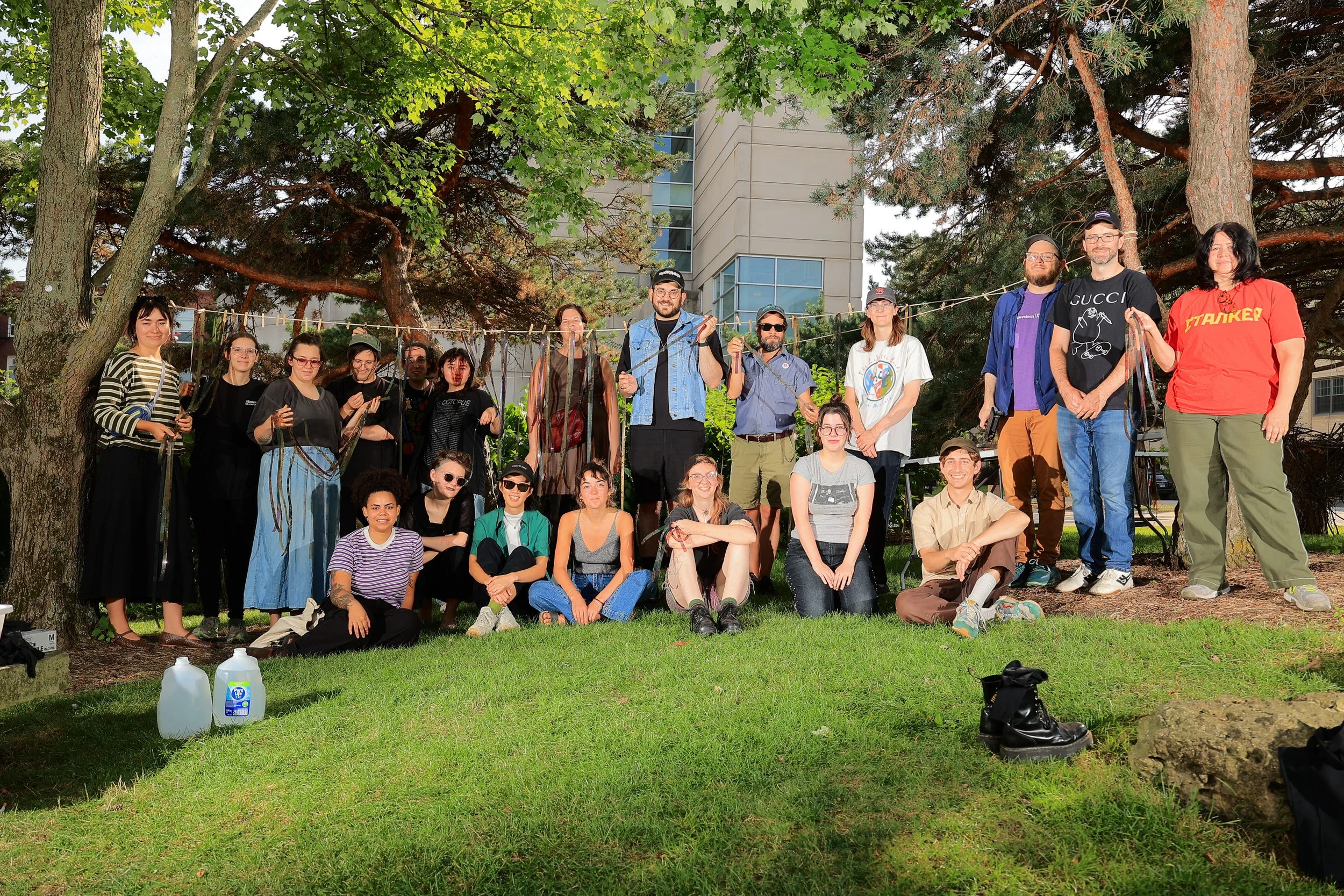Block Museum Workshops Connects Chicago Community with Local Plants and Eco Friendly Film Processing
Photo courtesy of The Block Museum of Art, Northwestern University.
Between August 2024 and June 2025, The Block Museum of Art’s Block Cinema program at Northwestern University, with support from the Earth Rising Foundation and in partnership with the Climate Crisis + Media Arts Working Group of Northwestern's Buffett Institute of Global Affairs, brought together artists, students, and community members for a series of hands-on workshops. These sessions demonstrated alternative methods for creating films and still photographs that bypass the harmful chemicals typically used in developing 16mm and 35mm film.
The first workshop introduced participants to phytograms. Attendees foraged leaves, flowers, and seeds, then placed them directly onto strips of unexposed 16mm film. Baking soda and vitamin C replaced conventional photographic chemistry. Eli Suzukovich III (Little Shell Band of Chippewa-Cree/Krajina Serb) who teaches about the role of native and invasive plants on Northwestern’s campus helped facilitate the workshop and guided the participants as they foraged for local plants. The result of this workshop was a collaborative reel of sun-printed images that captured the textures and colors of late summer in Chicago, now archived on the Block Museum’s Vimeo page.
Photo courtesy of The Block Museum of Art, Northwestern University.
The second workshop was held at Watershed Art & Ecology in Chicago’s Pilsen neighborhood, where San Francisco-based experimental filmmaker Greta Snider led a session on eco-friendly 35mm film processing. Using vintage cameras she provided, participants learned techniques like saltwater development and reflected on water as a creative partner. The group ranged from experienced photographers to newcomers.
The final workshop was held at the Gichigamiin Indigenous Nations Museum in Evanston. Indigenous filmmakers Adam Piron (Kiowa/Mohawk) and Lindsay McIntyre (Inuk) invited participants to create films without a camera or chemicals, splicing plant matter, seeds, and dried flowers directly onto strips of clear film leader. The workshop was organized in conjunction with the Block Museum’s exhibition Woven Being: Art for Zhegagoynak/Chicagoland, and with a showcase of Piron and McIntyre’s films at Block Cinema. A tour of the museum’s medicine garden, led by artist and gardener Camille Billie, connected the materials used in the films to their cultural significance and ecological roles.
Photo courtesy of The Block Museum of Art, Northwestern University.
Through these three workshops Block Cinema has not only introduced community members and creatives to more sustainable practices but built an intentional creative community that inspires people to use film media to think ecologically, and to make films and images that reflect the unique environment of their home. Plans are already underway to develop a publicly accessible eco-processing toolkit, ensuring that more artists can adopt these sustainable techniques. Earth Rising is proud to have supported a project that so effectively unites environmental responsibility, artistic innovation, and community connection.
To learn more about Block Cinema visit their website here.



